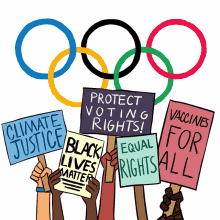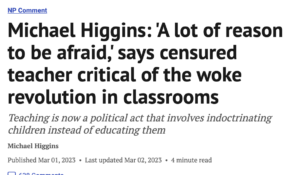In this week’s debate we got to hear from the talented groups: Amanda & Jacquie, and Ramsel. Their topic was Do Educators have a Responsibility to use Technology and Social Media to Promote Social Justice? This topic actually caught me by surprise because at first I was like of course! As teachers we should most certainly use technology to spread knowledge on being kinder and compassionate citizens. However, as we discussed as a class and I heard from both sides of the debtate groups I saw a more balanced view. The purpose of education is not to push political agendas or viewpoints, the purpose is to teach subject-specific skills, critical thinking, collaboration, self-discipline, and time management! Of course if along the way we teach students not to be shitty to one another that’s awesome! I fear that some of the political, social justice movements (while well-intentioned) can actually hinder the learning that can take place in the classroom. As well, it can create futher tensions than building reconciliation and community. Below are the points and overview of each side and my final thoughts.

Affirmative: Amanda & Jacquie
Opening statement video: Video link
Amanda and Jacquie shared the article “Teaching Social Justice in Theory and Practice” by Caitrin Blake.
Blake argues that in order to achieve a socially just classroom, teachers must build a space where students feel safe, and where they feel encouraged to speak openly about their experiences and beliefs. Students need to know that their voices and opinions are respected by their teachers and fellow classmates. Students can share their thoughts and ideas, but it is important that they know these things could bring some disagreements. Although there could be some disagreements, the students’ perspective is still valued. Teachers can model appropriate behaviours and questions, conversations can be thoughtful. Students see themselves as co-learners rather than competitors. Students know that disagreements can occur, but they are to use them as a learning experience and by working together, problem solve together to create a solution, and in turn: fostering a community of learners that builds each other up instead of tearing each other down. One way to strengthen your community of learners is to draw upon the experiences of the students found directly within your classroom. Using information that pulls from different perspectives of the situation that can build upon their prior knowledge. I agree that teachers should “employ books, articles and lesson plans that include diverse voices and cultures. Educators also may need to call upon colleagues or community members from specific backgrounds in order to better understand their cultures.” Once a teacher has provided an environment where students feel safe, it is then that social justice issues can be brought in. I think social justice (how to be a kind citizen, diverse awareness of those different from self culturally, religiously, etc.) can be a byproduct of the learning that takes place in the classroom but I think as teachers we need to be careful that its’ not the main focus. The main focus needs to be teaching students neutral concepts and to be self-motivated to learn and think on their own too so that one day when they face the world they can make compassionate and informed decisions.
Opposition: Ramsel
Opening statement video: N/A Readings: N/A

Ramsel’s posts and information was not available; however from her presentation I really appreciated her authenticity and her ideas on the ethical components of this debate topic. We are called as teachers to teach our subjects and not to politicize everything.
Final Thoughts

This article shared by classmate Laura Erikson: https://nationalpost.com/opinion/a-lot-of-reason-to-be-afraid-says-censured-teacher-critical-of-the-woke-revolution-in-classrooms feels wrong to support because it goes against the popular discourse today but I really appreciated it. The article highlights the importance of teaching students to be proficient citizens with subject-specific skills and atrributes. However, the current global agenda is so politicized and it’s making the classroom a space not about learning but about assimilating certain agendas and ideas. We need to be careful with this.
Leave a Reply